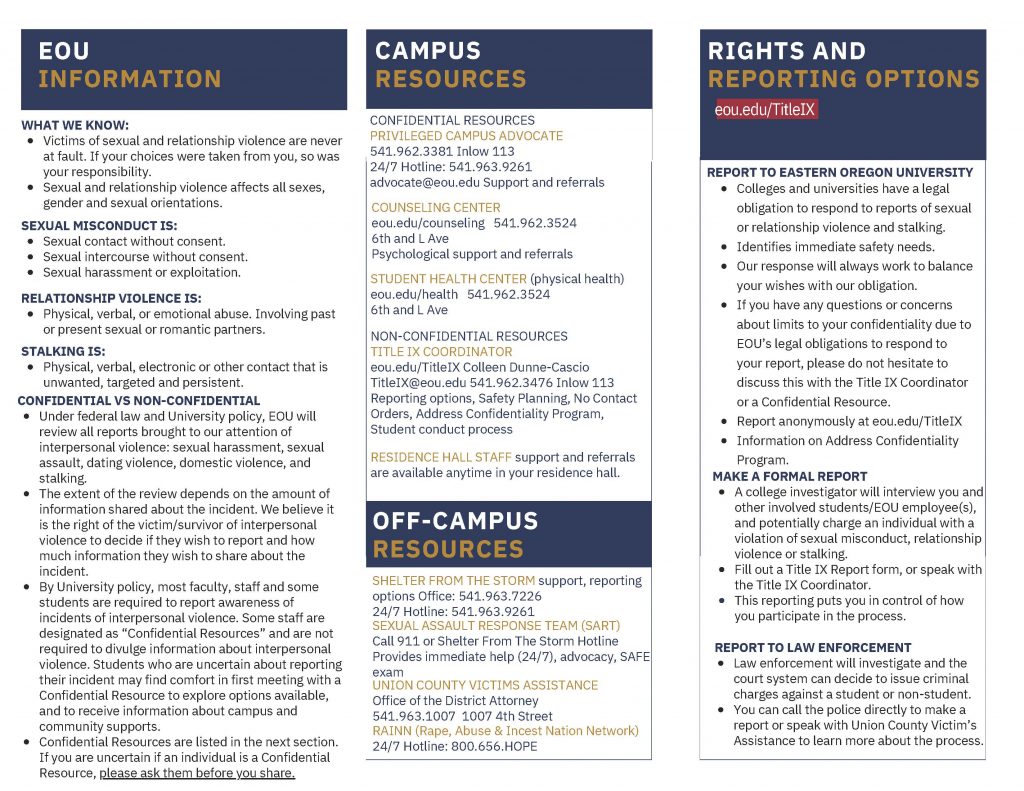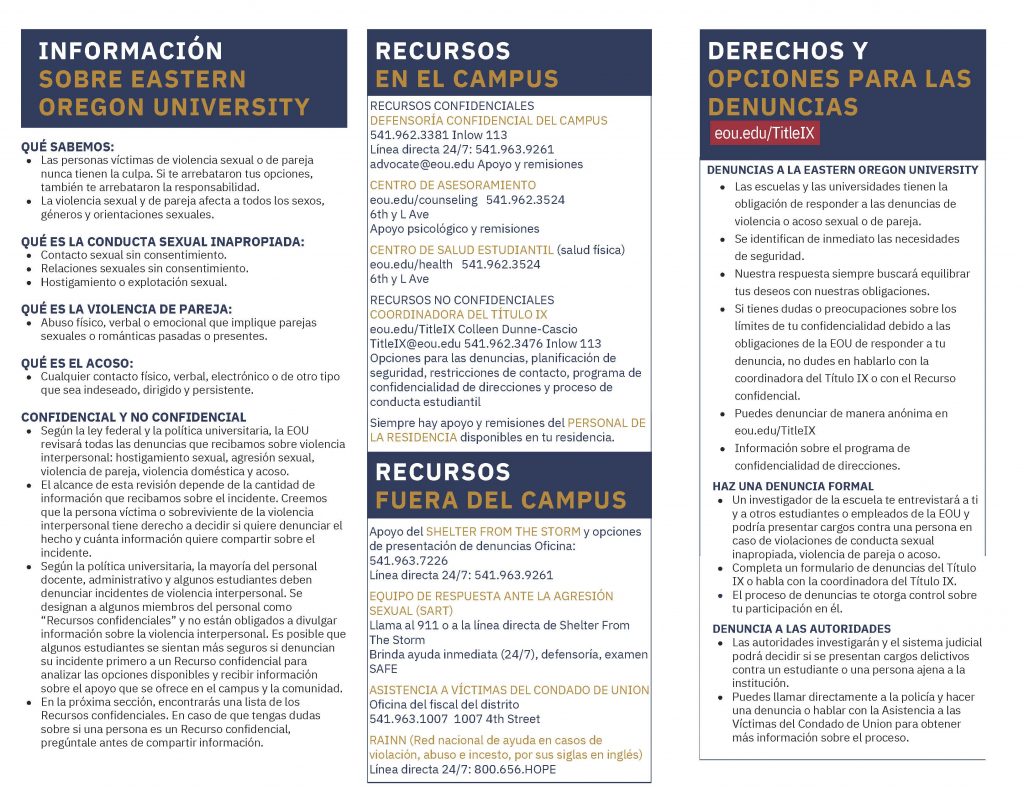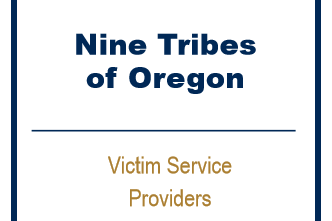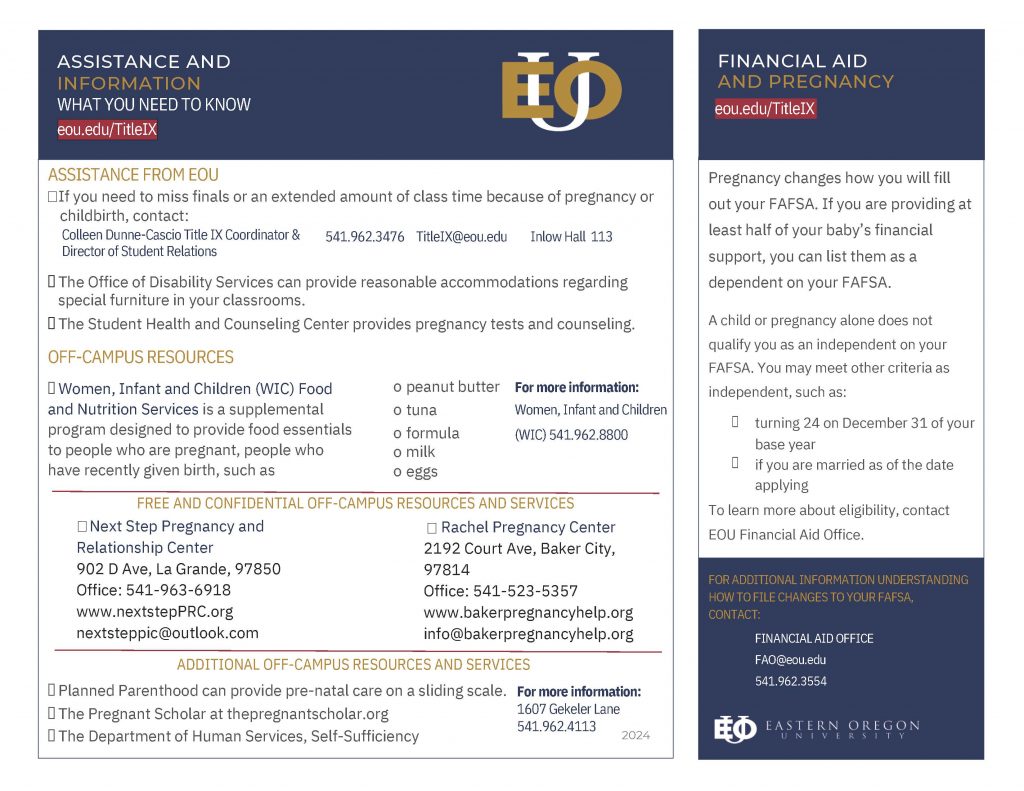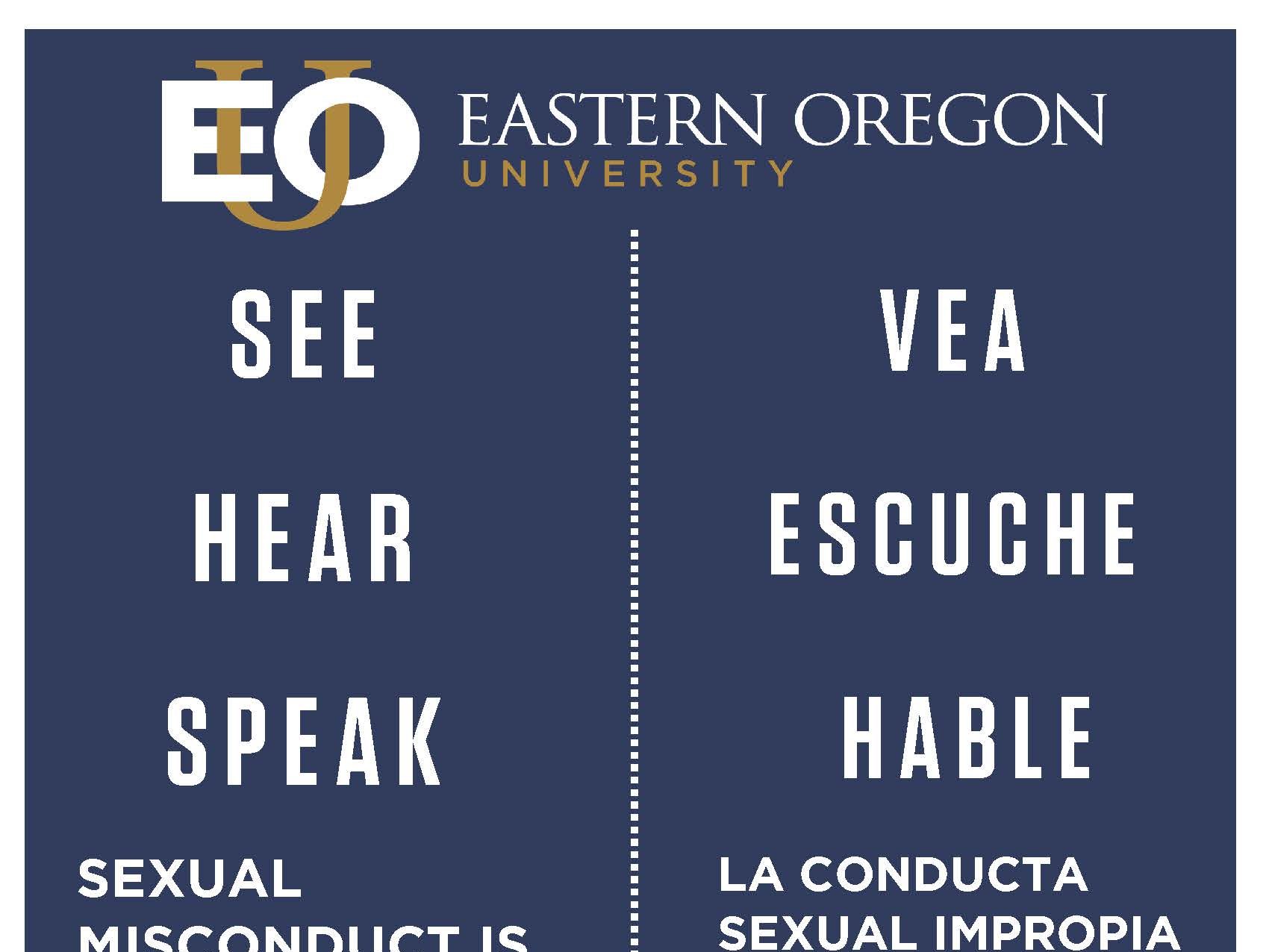Resources
Need to share and get the story to the right people? File anonymously and our professionals can address the situation.
Looking for information for immediate assistance? Visit our Get Help page!
If you have or know someone who has experienced an incident but you are not sure about it – connect with someone that can help.
Campus Sex Crimes Prevention Act
The federal Campus Sex Crimes Prevention Act of 2000 (CSCPA), which became law Oct. 28, 2000, but which delayed certain provisions until Oct. 28, 2002, amends the Jacob Wetterling Crimes Against Children and Sexually Violent Offender Registration Act. CSCPA provides special requirements relating to registration and community notification for sex offenders who are enrolled in or work at institution of higher education. In addition to the Wetterling Act, CSCPA also amended the Clery Act, an annual crime-reporting law, and the Family Educational Rights and Privacy Act of 1974 (FERPA) to allow the disclosure of this information regarding students.
As provided in the Wetterling Act, any person required to register under a state sex-offender program must notify the state regarding each institution of higher education in that state at which the person is employed, carries on a vocation, or is a student. They also must alert the state of any change in enrollment or employment status.
Under current state law, computerized sex-offender information can be obtained through local law-enforcement agencies and the Oregon State Police through the sex offender registration information line at 503-378-3720, ext. 4429. This computerized database can access sex offender information by name, address, zip code or county.
Additionally, the Director of Student Relations will maintain a list of sex-offenders who have been required to report their sexual-offender status to the institution under federal and/or state law.
Harassment
All Forms of harassment are a violation of federal law (Title VII and Title IX) and OAR 578-033-0220. EOU strives to provide a respectful environment of all of its citizens. Harassment of students, faculty or staff by any member of the university community is prohibited and will not be tolerated. Abuse of positions of economic, supervisory or academic power is oppressive and will be regarded as harassment. Sex discrimination, a form of sexual harassment, also is a violation of law and administrative rule.
If you believe you are being harassed, please contact the Title IX Coordinator at 541-962-3476. Complaints are assured maximum possible anonymity. Complaints are handled in accordance with EOU Policy; retaliation is prohibited.
Policies
- Student Code of Conduct
- Sexual Harassment Policy
- Consensual Relationship Policy
- Pregnancy and Parenting Rights
- Sex Offender Statement and Protocol
Additional Resources
- Address Confidentiality Program – Oregon Department of Justice
- Pregnancy and Parenting Rights – U.S. Department of Education
- No Contact or Restraining Order Guidelines
- Getting a Stalking Protective Order
- How to Get a Stalking Protective Order in Oregon
- EOU Sex Matters Website
- Know Your Rights – U.S. Department of Education
- Campus Sex Crimes Prevention Act (Sex Offender Registration)
- Sexual Assault Task Force – Oregon
- What to do if you’re the target of revenge porn
- Department of Labor Privacy and Security Statement
- Planner Information
- Human Trafficking Resources – Oregon Department of Justice
Publications
Title IX Brochures
Statement on retaliation
EOU prohibits retaliation against individuals who engage in reporting a complaint of sexual harassment, sexual misconduct, dating or domestic violence, and/or stalking. Retaliatory behavior is regarded as additional misconduct and may lead to increased sanctions.
Department of Labor Privacy and Security Statement
Questionnaire Results
In February of 2020 the Title IX Office and Shelter From the Storm distributed a digital questionnaire to the EOU Community in an effort to understand what the EOU Community knew about Title IX and privileged resources. Three hundred and two (302) employees and students responded. Some of the questions had multiple correct answers; please keep this in mind when reviewing the outcomes below as they will not equal 100% for a given question. The following are the results of this questionnaire.
